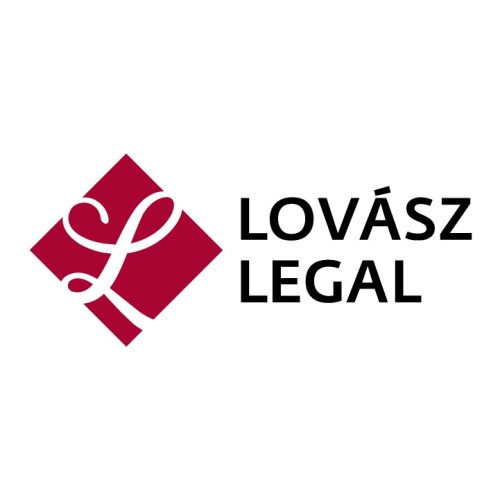Best Discrimination Lawyers in Slovakia
Share your needs with us, get contacted by law firms.
Free. Takes 2 min.
Or refine your search by selecting a city:
List of the best lawyers in Slovakia
About Discrimination Law in Slovakia
Discrimination Law in Slovakia is primarily governed by the Anti-Discrimination Act, officially known as Act No. 365/2004 Col. on Equal Treatment in Certain Areas and Protection against Discrimination. This legislation defines and prohibits discrimination across various fields, including employment, education, and access to services. The Act aims to create equal opportunities and prevent discrimination based on race, gender, age, disability, sexual orientation, and other characteristics. Slovakia's commitment to anti-discrimination is also reflected in its adherence to European Union directives and international human rights frameworks.
Why You May Need a Lawyer
There are several situations where legal expertise may be necessary in cases of discrimination. For instance, if you believe you have been unfairly treated in your workplace due to your ethnicity or gender, legal assistance could be crucial. Additionally, if denied access to services like education or healthcare because of age or disability, seeking a lawyer's guidance can help you understand your rights and pursue proper legal action. Often, legal professionals can help navigate complex bureaucratic processes and represent your case effectively in court or negotiations.
Local Laws Overview
The key aspects of Slovakian anti-discrimination laws focus on promoting equality and preventing discrimination. The Anti-Discrimination Act provides remedies including compensation and the retraction of discriminatory statements. Employers and service providers are required to comply with equality principles, and failure to do so can result in penalties. Specific attention is given to the employment sector, ensuring that recruitment, promotion, and terms of employment are free of bias. Furthermore, Slovakia's legal framework harmonizes with EU regulations which extend these protections to broader contexts, such as goods and services, health, and education.
Frequently Asked Questions
What constitutes discrimination under Slovak law?
Discrimination occurs when someone is treated less favorably than another person in a comparable situation based on characteristics such as race, gender, age, or disability.
What are the legal remedies available for discrimination in Slovakia?
Victims of discrimination can seek redress through the courts, which may include compensation, reinstatement of employment, or other measures to rectify the discriminatory situation.
Can I file a discrimination complaint anonymously?
Complaints in Slovakia generally require identification to proceed, as anonymity can hinder the investigation; however, the law protects individuals from retaliation after filing a complaint.
How long do I have to file a discrimination claim in Slovakia?
The statute of limitations for filing a discrimination claim is generally 3 years from the date of the discriminatory act.
Are there any governmental bodies overseeing discrimination issues in Slovakia?
The Slovak National Centre for Human Rights is a key body tasked with promoting equal treatment and handling complaints related to discrimination.
How does Slovakia handle discrimination in the workplace?
Employers in Slovakia are required to promote equality and diversity, and workplace discrimination based on any protected characteristics is prohibited under the law.
Is sexual orientation a protected characteristic under Slovak discrimination law?
Yes, discrimination based on sexual orientation is explicitly prohibited under both national and EU anti-discrimination frameworks.
What should I do if I face discrimination in an educational institution?
If you face discrimination in education, you can lodge a complaint with the institution, seek assistance from human rights bodies, or pursue legal action through the courts.
Can tourists or foreign nationals seek protection against discrimination in Slovakia?
Yes, Slovak law provides protection against discrimination to all persons within its territory, regardless of nationality.
Do I need a lawyer to file a discrimination complaint?
While it is possible to file a complaint without a lawyer, having legal representation can significantly benefit your understanding of the process and enhance your chance of success.
Additional Resources
For further assistance, individuals can contact the Slovak National Centre for Human Rights, which offers support and guidance on issues related to discrimination. The Centre provides legal advice and can help mediate disputes. Additionally, victims can seek help from local non-governmental organizations that focus on human rights and anti-discrimination. The European Union Agency for Fundamental Rights can also provide insights into rights and protections applicable within Slovakia.
Next Steps
If you need legal assistance related to discrimination, consider contacting a lawyer who specializes in human rights or employment law. Start by gathering evidence of the discriminatory acts, including any communications or documents that support your claim. Consult legal professionals to assess the strength of your case and explore potential remedies. It is also crucial to keep track of any deadlines for filing complaints or developing legal strategies.
Lawzana helps you find the best lawyers and law firms in Slovakia through a curated and pre-screened list of qualified legal professionals. Our platform offers rankings and detailed profiles of attorneys and law firms, allowing you to compare based on practice areas, including Discrimination, experience, and client feedback.
Each profile includes a description of the firm's areas of practice, client reviews, team members and partners, year of establishment, spoken languages, office locations, contact information, social media presence, and any published articles or resources. Most firms on our platform speak English and are experienced in both local and international legal matters.
Get a quote from top-rated law firms in Slovakia — quickly, securely, and without unnecessary hassle.
Disclaimer:
The information provided on this page is for general informational purposes only and does not constitute legal advice. While we strive to ensure the accuracy and relevance of the content, legal information may change over time, and interpretations of the law can vary. You should always consult with a qualified legal professional for advice specific to your situation.
We disclaim all liability for actions taken or not taken based on the content of this page. If you believe any information is incorrect or outdated, please contact us, and we will review and update it where appropriate.
Browse discrimination law firms by city in Slovakia
Refine your search by selecting a city.











